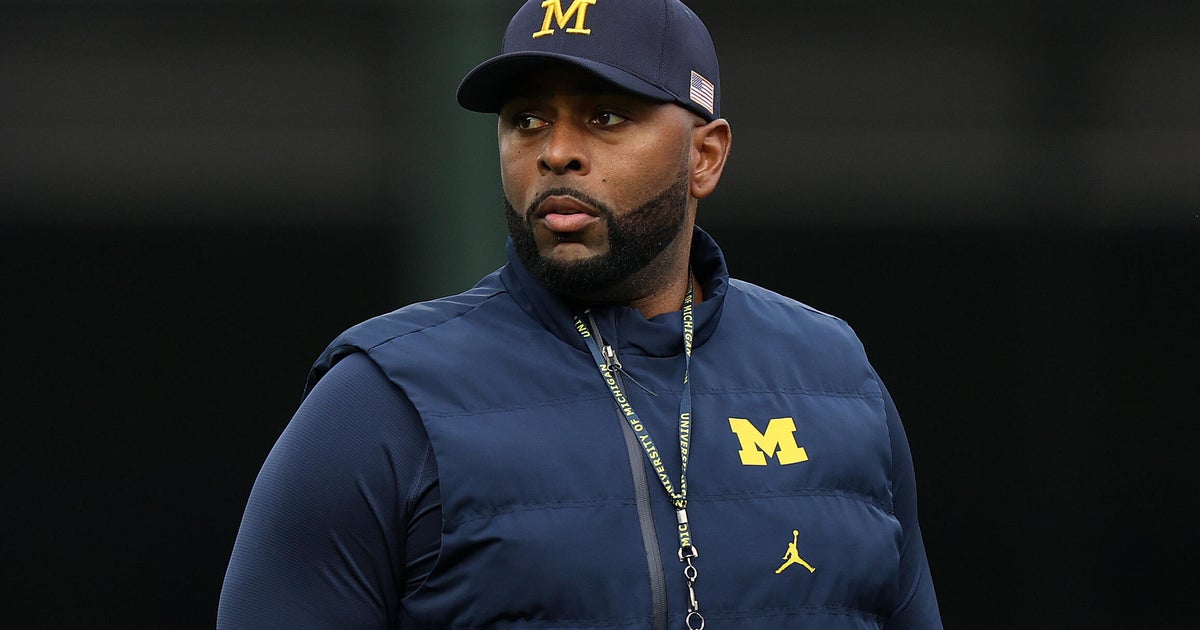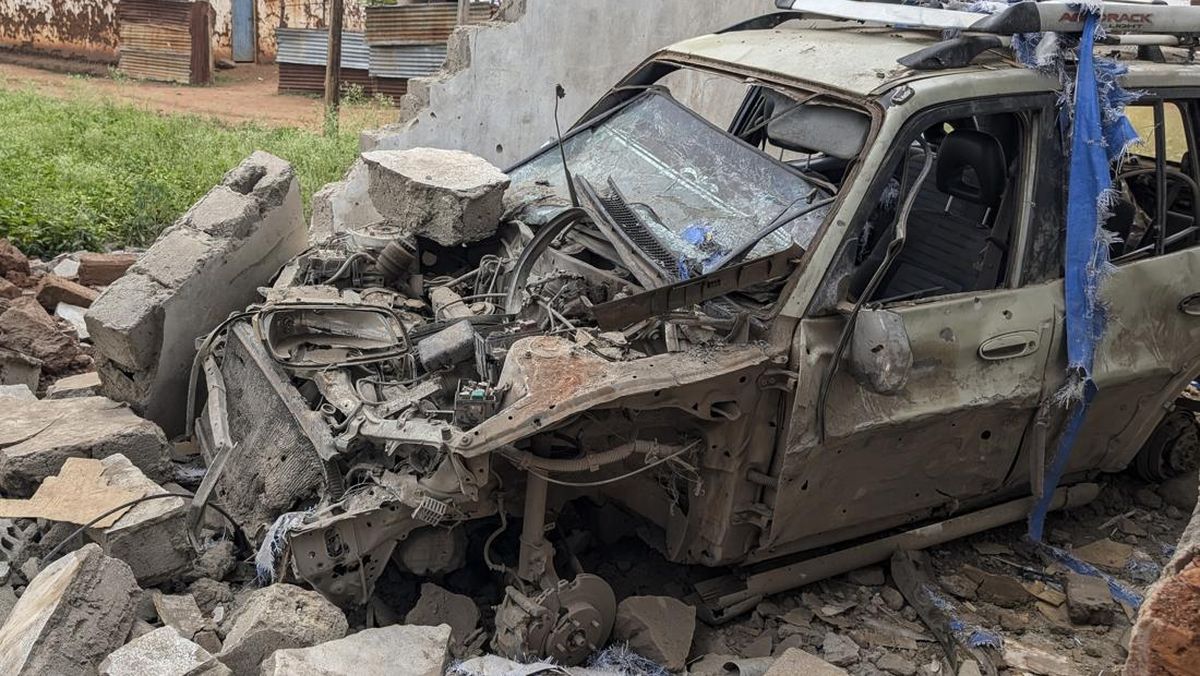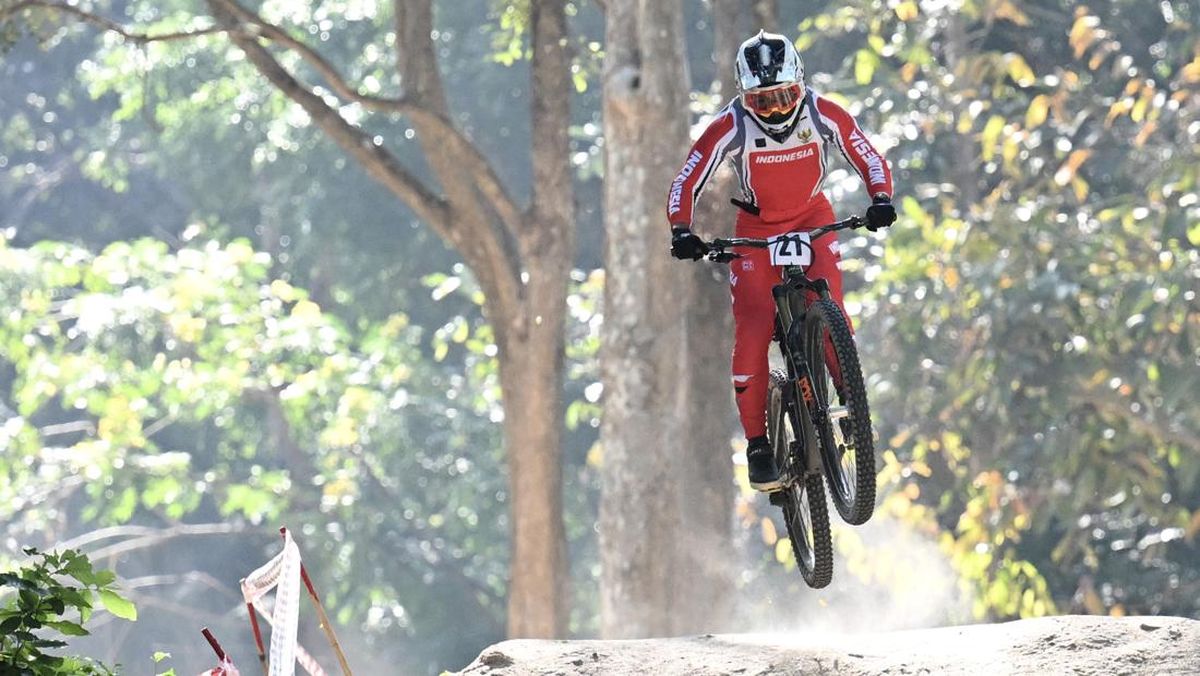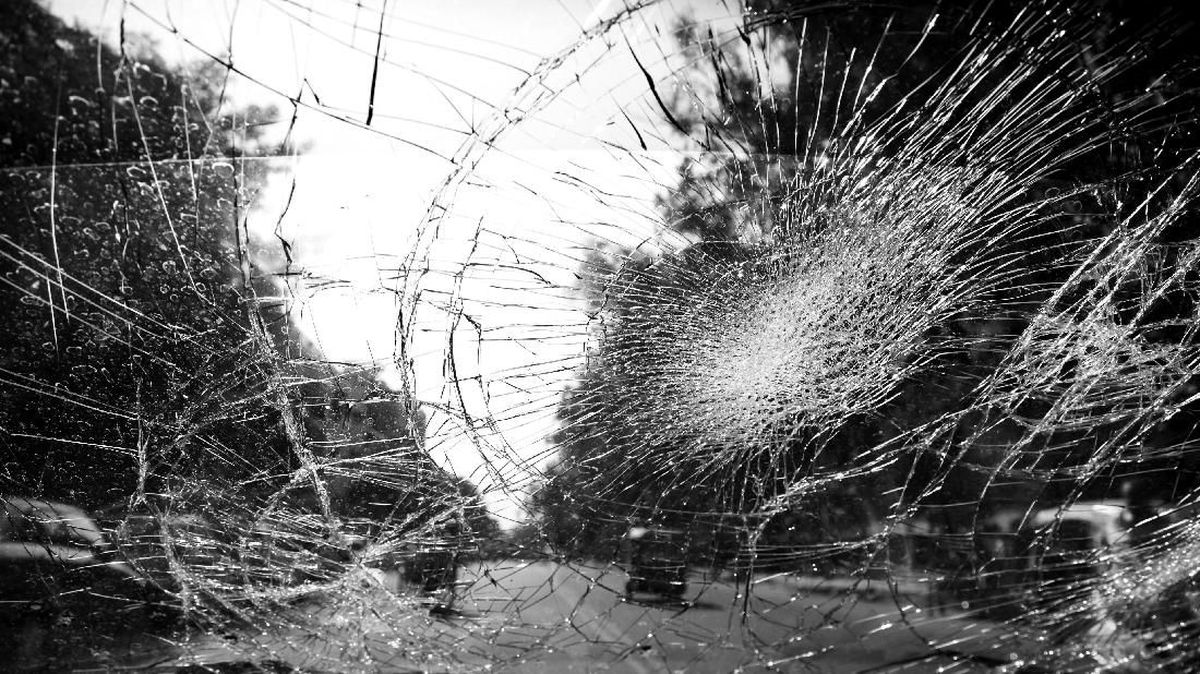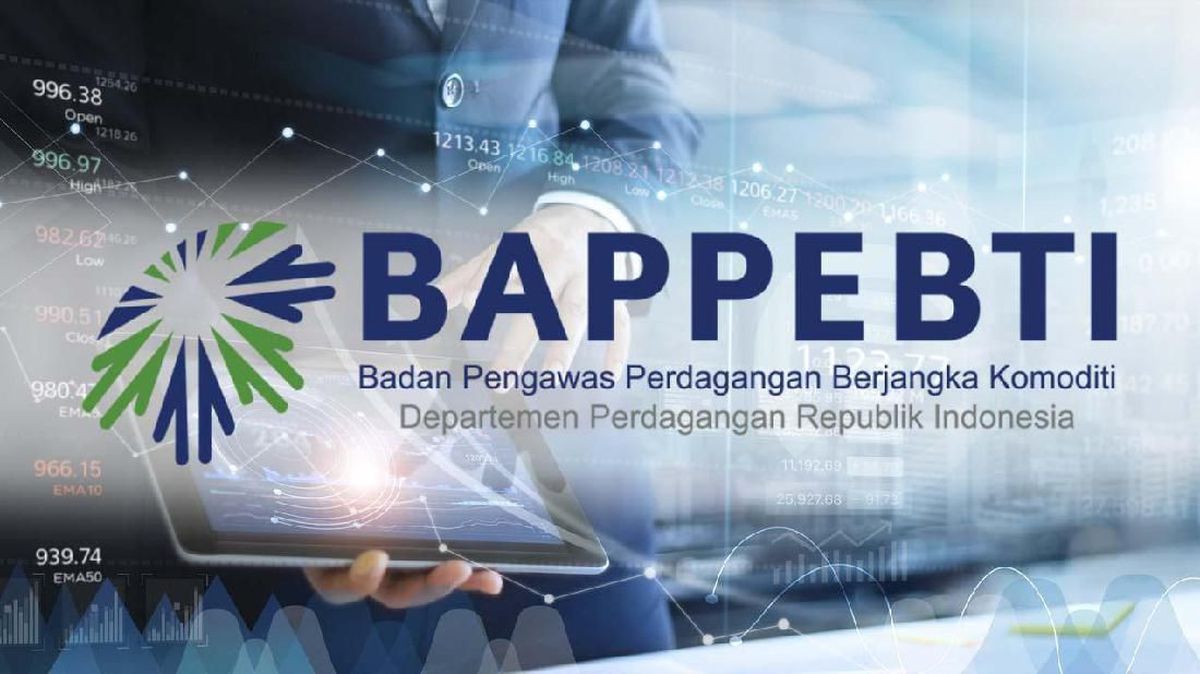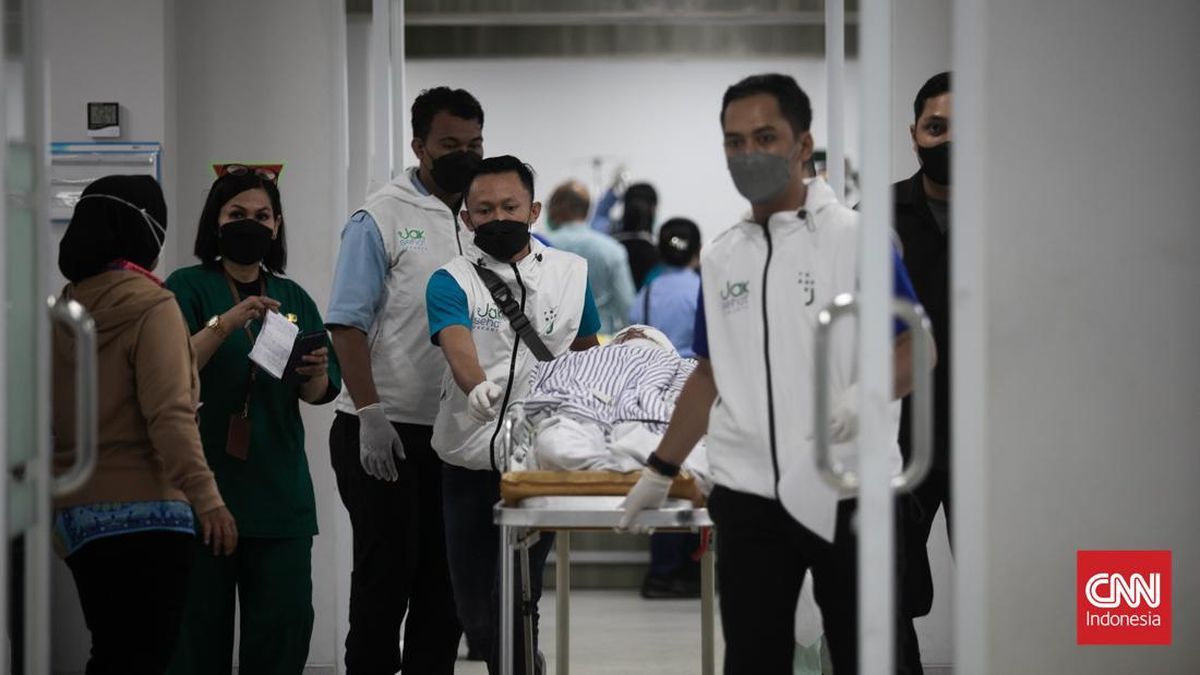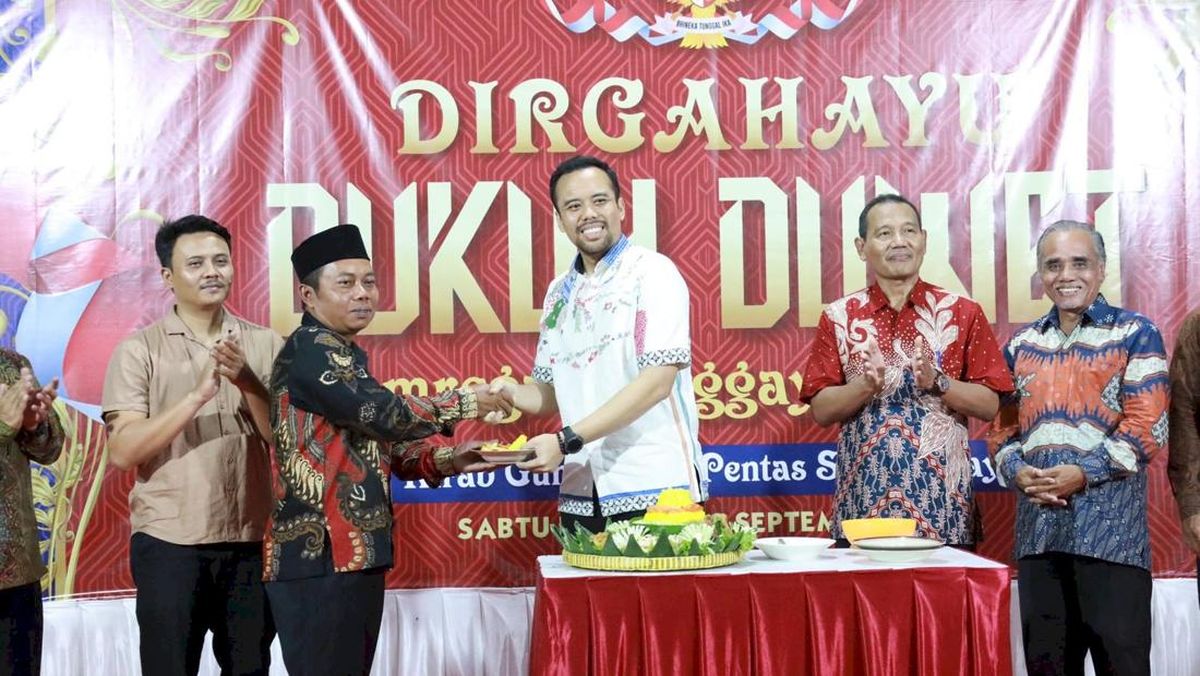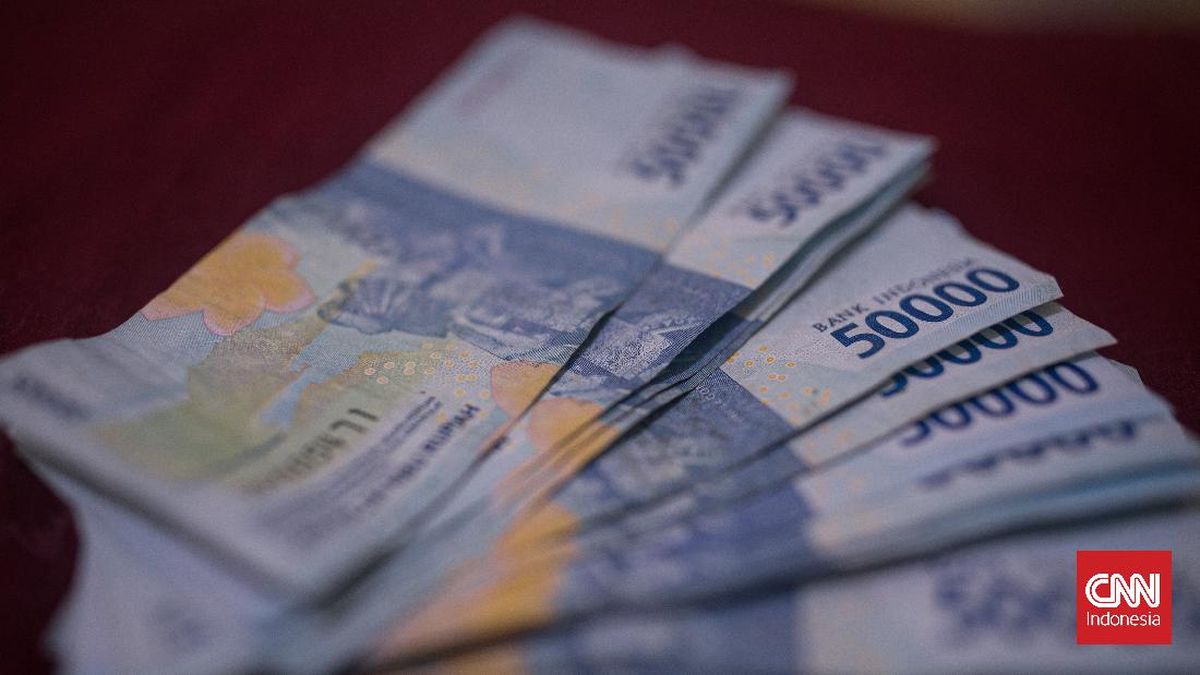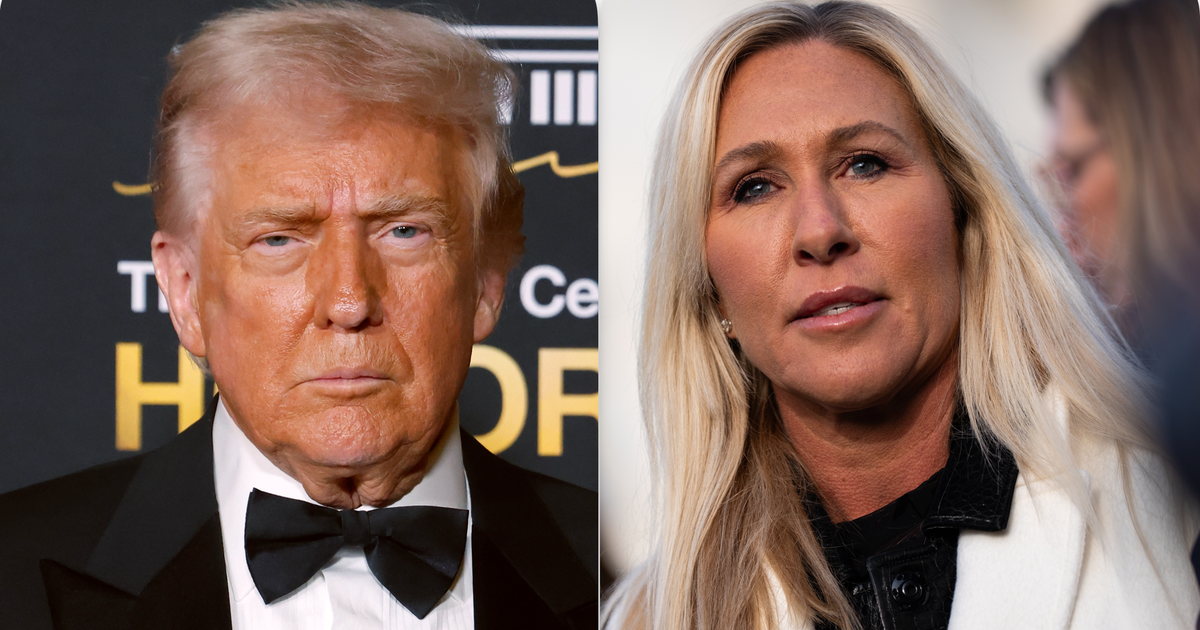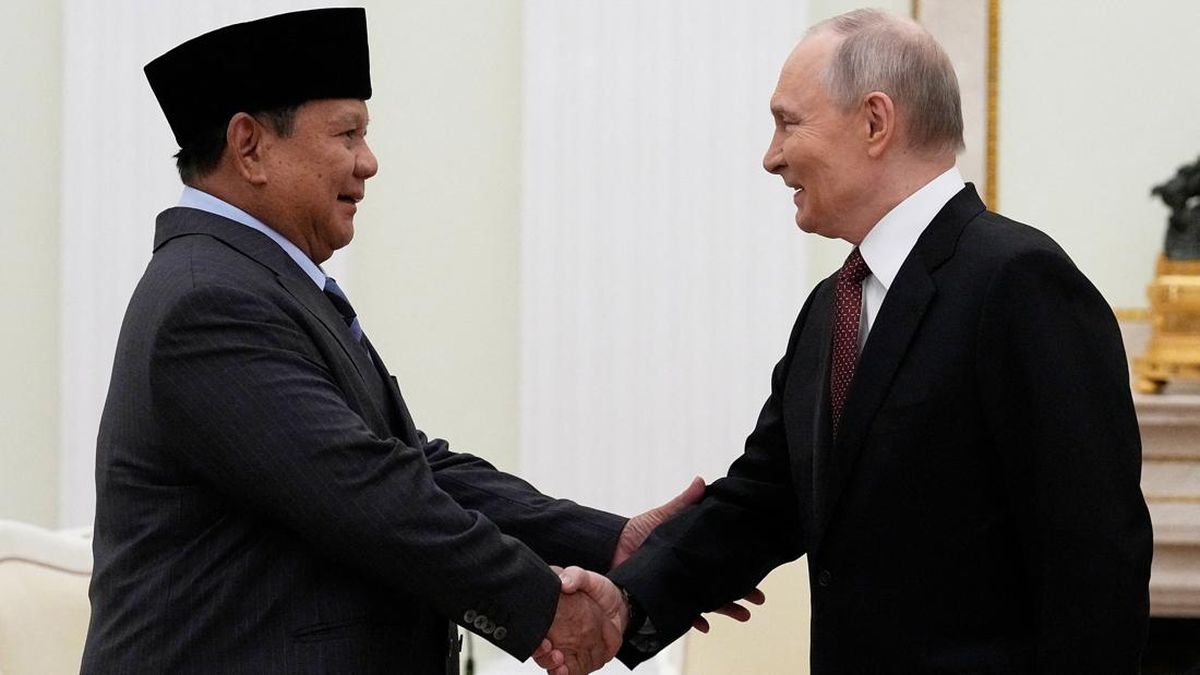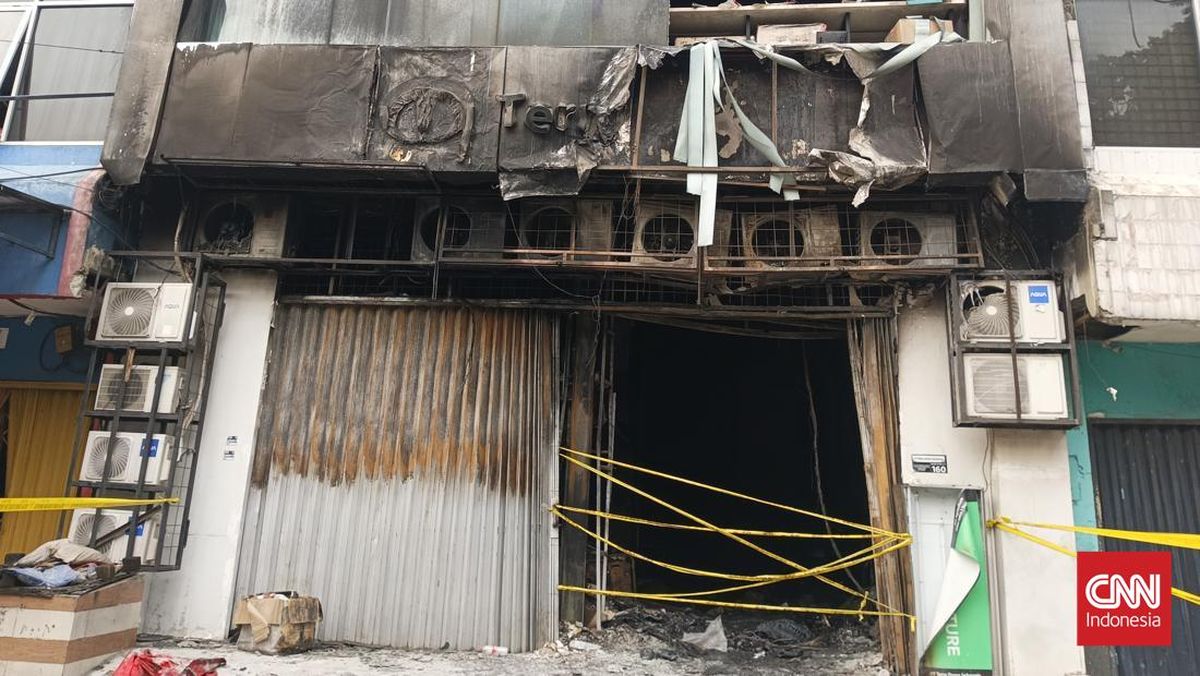This video is an extended version of the interview that was broadcast on 60 Minutes on Sunday, October 19, 2025.
This extended version was condensed for clarity.
LESLEY STAHL: So I understand that you were up at 4:30 in the morning, this morning, working, what on phase two? What were you working on?
JARED KUSHNER: So Steve is a very early riser. And my kids get up early to go to school. So-- the time before they get up is usually a great time for us to catch up before the day and go over what's been happening overseas. So this morning we were talking about a lot of the issues of getting the aid into Gaza and deconflicting some of the misunderstandings that are--
LESLEY STAHL: Deconflicting? Meaning?
JARED KUSHNER: Meaning that you have-- a lot of people with good intentions right now. An example is the U.N. is trying very hard to get food into-- the people of Gaza. The Turks were offering to send a recovery and rescue team in to help search for some of the-- the dead hostages-- that-- that we're looking to recover. And-- there's just a lotta miscommunication that stalls and holds up some of these efforts. So-- getting all sides' perspectives and finding a mechanism to get quick adjudications, and the right adjudications-- is something that's very necessary to put in place.
LESLEY STAHL: I heard the president asked you what the chances (LAUGH) were for success.
JARED KUSHNER: Yes.
LESLEY STAHL: And you said?
JARED KUSHNER: 100%. And he said, "Why do you feel so confident?"
LESLEY STAHL: Yeah.
JARED KUSHNER: And I said, "Well, we can't afford to fail."
STEVE WITKOFF: We just kept on thinking to ourselves, "This finish line? This finish line is about saving lives."
LESLEY STAHL: I need to know if you did some bare-knuckle stuff. You know, I think of the real estate negotiation as hard-nosed, get your dukes up.
JARED KUSHNER: There were a couple intense moments that we had. But wha-- what led to this was really the trust that we were able to build. And-- I was trained in foreign policy really in President Trump's first term by seeing an outsider president come into Washington with a different school of foreign policy than had been brought in place for the 20 or 30 years prior. And his foreign policy was really about pragmatic realism, right? Taking pragmatic stances-- trying to use strength to avoid wars, and figuring out how to-- make deals, not lecture the world. And so-- the way that--
LESLEY STAHL: Wait-- wha-- what does that mean? Make deals and not lecture the world?
JARED KUSHNER: Focus on interests over values sometimes. And figure out what are-- where do we have joint interests with other countries, and pursue those joint interests. And then where you have differences on interests or values, discuss those privately and try to find ways to get it to the best place possible.
But the way that we were successful in the first term with a lot of the different trade deals and-- peace negotiations, like Abraham Accords and the-- ending the GCC dispute was that we never approached it with people like we were across the table from you.
We sat-- with the people on-- from other countries and we said, "Let's agree on the same objective." And then once we agreed on the objective, we kind of locked arms and said, "Let's figure out ways that we can work together to try and get there."
We joke with the Abraham Accords that we succeeded at Plan C, but only because we went through the alphabet three times and failed at every letter and kept going, and we never quit.
LESLEY STAHL: And was that true here as well?
JARED KUSHNER: We probably went through the alphabet seven or eight times--
STEVE WITKOFF: I think so.
JARED KUSHNER: --on this one.
STEVE WITKOFF: Yeah.
LESLEY STAHL: And--
STEVE WITKOFF: This was more complex.
LESLEY STAHL: I heard that one of the things that was different from a diplomatic approach was that you took risks, more risks, a lotta risks. Would you agree with that?
STEVE WITKOFF: Well, h-- h-- first, I would say that-- President Trump is a very different sort of president to work for. He delegates well. I don't think people realize that. He gave us a lot of authority to negotiate. He felt-- he-- he understood the dynamics of it. We put him in the room. We explained it to him I think thoroughly. But he gave us lots of authority-- Lesley. And I--
LESLEY STAHL: To make decisions without having to check in all the time?
STEVE WITKOFF: Yeah. And it's not to say, by the way, that we wouldn't check in. We did check in, often. But that-- that feeling of comfortability on our part, it allowed us to-- to freewheel it a little bit.
LESLEY STAHL: Give us an example of the freewheeling. Give us some insight into how that worked.
JARED KUSHNER: After the missile strike-- in Qatar from Israel-- Steve and I basically were-- were very upset about that. We thought that that really was not a smart strategic move, and it violated a lot of the trust that we felt-- like we deserved from the Israeli side.
And so at that point-- Steve and I basically sat together and said, "We need to take a whole new approach. And perhaps with all of this chaos can come an opportunity." And so we decided to take the previous ceasefire proposal and then the end of war proposal that we'd been working on, and merge it together into one document, and then focus on seeing if we can get the Qataris and the Arab world onboard.
And so we put that together, spoke with the Qataris, made a lotta progress, brought it to the president, and he said, "I love this idea. Let's go all in and let's push very hard to get the Arab world aligned. And then we'll figure out how to get Israel onboard and turn this whole negotiation around."
LESLEY STAHL: Okay. I'm gonna come back to the attack on the-- compound in Doha. But let's-- move forward for one second.
LESLEY STAHL: So, you have both done a lot of business with the Gulf states, billions and billions of dollars worth of business. And you've done some of the business while this negotiation has gone on and that has raised some issues of conflict. I mean, some blurring of a line between, you know, what you're doing in terms of foreign policy and benefiting financially from what's going on.
JARED KUSHNER: So first of all, Lesley, nobody's pointed out any instances where Steve or I have-- pursued any policies or done anything that have not been in the interest of America. Number two is--
LESLEY STAHL: But the perception?
JARED KUSHNER: But Lesley, we-- we can't spend our time focused on perception as much as we have to focus on the facts. We're here to do good. These are impossible tasks. And because this is important, I've volunteered my time to help the President and Steve to try to make progress. But Steve nor I will be involved in awarding contracts or figuring out who does business-- you know, in Gaza after.
STEVE WITKOFF: Well, from my standpoint, Lesley, I-- I'm not in business anymore. I've divest--
LESLEY STAHL: Yeah, but your family is.
STEVE WITKOFF: But I've divested. Like Jared, I receive no salary, and I pay all my own expenses.
LESLEY STAHL: This has become an issue.
JARED KUSHNER: What people call conflicts of interests, Steve and I call experience and trusted relationships that we have throughout the world. If Steve and I didn't have these deep relationships, the deal we were able to get done, that freed these hostages would not have occurred.
JARED KUSHNER: We have trusted relationships in the Arab world and even in Israel, where we've both done business in the past. But that means they trust us. We understand their cultures. We understand how they work. And we're able to use those-- that knowledge and skill set to try to do things that advance the world.
STEVE WITKOFF: I would-- I would agree exactly with what Jared said. And I like-- his statement that-- conflict of interest is-- is-- a terminology used by some, and we call it experience. We really do.
LESLEY STAHL: You call conflict of interest experience?
STEVE WITKOFF: Because we don't think there was a conflict of interest, Lesley. That's why. Because we don't think that-- we crossed any ethical barriers. Because there becomes this sort of per-- perception that there might be a conflict of interest because we can call Sheikh Mohammed in Qatar directly, or because we can call Bibi directly, or because we can call the foreign minister of Turkey, who is-- a very critical person in this-- equation, or call-- MB Zayed in the Emirates, or MBS.
LESLEY STAHL: Get 'em on the phone? B--
STEVE WITKOFF: Immediately, and-- and garner support. The president, when we went to that UNGA-- meeting with the Arab leaders, came out of that with almost unanimity, a consensus of support from everybody there. We had been working those-- telephone lines to all the leaders of those countries. We were not talking to-- junior people or lieutenants over there. We were talking directly to the people who make the final decisions. And that ultimately became very, very critical to the-- to-- us being successful.
LESLEY STAHL: I-- I wanna ask you about a statement you made that may have framed your outlook on this. Jared, you said, "Issues are simple. It's the people (LAUGH) who are com-- complicated and complex." Issues are simple? Now, that really is inverting the way diplomacy has worked.
STEVE WITKOFF: Yeah. Well, I agree with him, by the way. I agree with that statement. I-- I say all the time--
LESLEY STAHL: The (UNINTEL) issues were so thorny. They're still impa-- you know, hard to--
STEVE WITKOFF: Well--
LESLEY STAHL: --get through.
STEVE WITKOFF: I like to say, Lesley, and it's a version of what Jared-- your quote to Jared is just saying. I like to say that we're sort of like th-- we're-- our titles should be secretary of miscommunication (LAUGH) and correcting miscommunication because that's a lot of what we were doing out there.
You know, we were tryin' to build trust between people who didn't trust each others-- each-- each other for-- for-- because of decades of-- of mis and distrust. And that's not an easy thing to correct.
JARED KUSHNER: Can I say on the issues are-- on the issues are simple and the people are complicated, when I first started looking at this file, I spoke to everyone who'd been involved in the Middle East diplomacy for the 20 years prior.
LESLEY STAHL: All the historians and all of those people--
JARED KUSHNER: Yeah. And the way they were explaining things to me just made no sense. And the foundational idea that I came to is that people just wanna be able to live with security and live freely. They wanna be together. They wanna have economic opportunity.
They want their children to be able to live a better life. And they wanna safely and freely practice whatever religion they choose to practice. And that for me was really what it was about. And so when you think about everything through that light, you have all these old historical conflicts, or Balkanization of communication, and it really is just getting people to focus on how do we make the future better, versus getting stuck in these old conflicts.
LESLEY STAHL: We wanna walk through, you know, chronologically. And we wanna start with the bombing in Doha. We've been told that that bombing, the Israelis bombing the compound where the Hamas negotiators were in-- in the capital of-- Qatar-- that that was a turning point. That the Israelis had crossed some line. Explain how that was a turning point. What went through everybody's mind? How did it move your negotiations from one place to another place?
STEVE WITKOFF: Well, Lesley, we were on that I wanna say Monday. It was Monday, Jared, right?
JARED KUSHNER: Yeah.
STEVE WITKOFF: Yeah. We were Monday at m-- it was my turn to host the-- the-- negotiations. So me-- Ron Dermer, who is the--
STEVE WITKOFF: --lead minister in Israel, and-- Jared were at my home. And we were going through the peace proposals that we were putting on the table. And-- and at the time, we were discussing compromise deals. We were discussing what they called the ten and ten. Ten hostages come out, ten get left for the final negotiation.
We were discussing a complete deal. And we were sending-- Jared was drafting. He had his computer out. And-- he was drafting. And we were d-- the three of us having-- what I thought was-- you know, a very productive session. And we were sending these drafts back to the Qataris, who were sitting in the room with--
LESLEY STAHL: In Doha?
STEVE WITKOFF: In Doha, presumably Hamas. And they were going over things. And we came away thinking that we were awful close to a deal. And in fact, I was supposed to go to Paris on Friday and meet Sheikh Mohammed and several other people. We had agreed to that trip, and we came up with-- this notion that we would let Hamas-- have a four and a half day-- period of time to get back to us as to whether the deal was done or not. We woke up the next morning to find out that there had been this attack. And, of course, I was called by the president.
LESLEY STAHL: You had no idea obviously?
STEVE WITKOFF: None whatsoever.
STEVE WITKOFF: Y-- you know, I think both Jared and I felt-- I just feel we felt-- a little bit betrayed.
LESLEY STAHL: Now, I had heard that the president h-- that he was furious.
JARED KUSHNER: I think he felt like the Israelis-- were getting a little bit out of control in what they were doing, and that it was time to-- it was time to be very strong and stop them from doing things that he felt were not in their long term interests.
LESLEY STAHL: People should understand that Netanyahu, the Israelis, bombed the peacemakers, bombed the negotiating team.
STEVE WITKOFF: And by the way, Lesley, it had a metastasizing effect because the Qataris were critical to the negotiation, as were the ge-- the Egyptians and the Turks. And we had lost the confidence of the Qataris. And so Hamas went underground, and it was very, very difficult to get to them. And--
LESLEY STAHL: And they were the-- your link to Hamas?
STEVE WITKOFF: Absolutely.
LESLEY STAHL: You were dealing through the Qataris-- to make your proposals to Hamas.
STEVE WITKOFF: And it became very, very evident as to how important and how critical that role was.
LESLEY STAHL: But there was something that happened that-- brought the Qataris back in. And that was this phone call that I think President Trump actually forced Netanyahu to make to the Qataris.
STEVE WITKOFF: I wouldn't call it forced.
LESLEY STAHL: You wouldn't?
STEVE WITKOFF: No. I would-- I would say--
LESLEY STAHL: It looked that way.
STEVE WITKOFF: --that-- I would--
JARED KUSHNER: He's becoming a diplomat now.
STEVE WITKOFF: Yeah.
LESLEY STAHL: Clearly. (LAUGH)
STEVE WITKOFF: I would say that--
STEVE WITKOFF: That apology was pivotal. It was the linchpin that got us to the next place. It was really, really important that it happened. And I think we spent-- with the president, at his direction, we spent a lot of time discussing it with Dermer, discussing it with-- Prime Minister Netanyahu. And then the president weighed in.
LESLEY STAHL: He was tough with Netanyahu?
JARED KUSHNER: P-- President Trump had a great line-- at his speech in the Knesset where he said, "Bibi's very tough, but that's what makes him great." And ultimately, Prime Minister Netanyahu wasn't gonna do anything, or say anything, or agree to anything that he didn't feel comfortable with. But he-- he knew what needed to be done at that moment to make peace. And I give him a lot of credit for meeting the moment and doing what needed to be done in order to get this deal done.
The goal of the phone call was to help things move forward. And now there's a trilateral mechanism between the countries which didn't happen before. So this is the first time there's a formal mechanism now between Israel and Qatar. And I believe over time Israel and Qatar could actually turn out to be incredible allies in the region to advance things forward.
STEVE WITKOFF: The apology needed to happen. It just did. We were not moving forward without that apology. And the president said to him, "People apologize." I-- I remember him saying, "I apologize sometimes." I'm talking about President Trump. And--
LESLEY STAHL: Rarely.
STEVE WITKOFF: I don't know about that. I've-- I've seen him-- I've seen him--
LESLEY STAHL: Okay, three times. (LAUGH)
STEVE WITKOFF: But--
JARED KUSHNER: No. Pr-- pr-- pre-- President Trump told Prime Minister Netanyahu that it was time to make peace. And he said, "We're not gonna make you do anything that will create long term security issues for your country. But we want you to work very closely with us and be flexible on the areas where you could be flexible in order to give us what we need to get the Arab world onboard and get this deal done."
LESLEY STAHL: So after this, the Qataris are back in, and-- so th-- they were kind of squeezing Hamas. And you were kinda squeezing-- the Israelis. Is that the right way to say it? And how did you-- doing that, how did things move forward from there?
JARED KUSHNER: I don't think "squeezing" is the right word. I think refining the different variables that were truly necessary--
LESLEY STAHL: Now you're the diplomat. (LAUGH)
JARED KUSHNER: No, I-- I say this very sincerely, which is at the end of the day, it goes back to the issues were pretty simple. We wanted the hostages to come out. We wanted a real ceasefire that both sides-- would respect. We needed a way to bring humanitarian aid into the people. And then we had to write all these complex words to deal with the 50 years of stupid word games that everyone in that region is so used to playing. Both sides wanted the objective. And we just needed to find a way to help everyone get there.
LESLEY STAHL: But you w-- you were dealing with the Israelis, and the Qataris were dealing with Hamas. And you were dealing with--
STEVE WITKOFF: Yes--
LESLEY STAHL: --the Qataris?
STEVE WITKOFF: Yes and no. The Qataris were the interlocutors directly talking to Hamas. But then we were on the phone with the Qataris, the Egyptians, and the Turks. And the notion was to convince everybody that those 20 Israeli hostages who were alive, were no longer assets for Hamas. They were a liability.
LESLEY STAHL: How did they become a liability and not their sort of--
STEVE WITKOFF: Beca-- because they weren't--
LESLEY STAHL: --bargaining chip?
JARED KUSHNER: What did Hamas gain by keeping these hostages? You had tens of thousands of Palestinians who were killed in these wars. You have half of Gaza, or more than half of it, is absolutely destroyed. And so what's been the gain? And so they saw the commitment from President Trump and the Arab mediators to say, "We wanna help the Palestinian people. We wanna help them find a way to have a better life. And that can't begin until the hostages are returned and this war is ended."
LESLEY STAHL: So the same day-- of the phone call, I think, the president announced his 20-point plan for peace in the region. And the Israelis were supposed to stop the bombing, and Hamas was supposed to release the hostages as point one outta the 20 points. So how did you move from there to get an agreement because--
JARED KUSHNER: We--
LESLEY STAHL: --th-- it wasn't-- you weren't that close that day.
JARED KUSHNER: So the way we designed the 20-point plan-- with President Trump was to give it enough room so that we can then not get into the same technical, longated negotiations that had occurred in the past and give a lot of people the ability to stall and kill the deal.
So we tried to make everything as defined as possible. And what that did was it put the ball in the court of Hamas, and it turned the Arab world against them because now the Arab world had endorsed this plan, and President Trump had gotten Israel to agree to the plan.
So whereas two weeks earlier Israel was globally isolated, within two weeks Hamas was now globally isolated and their Arab benefactors were now all saying, "It's time to make a deal." So that maneuver changed the entire global dynamic. And what then we did is we said, "Well, they need to respond."
So-- the Qataris, the Turks, and the Egyptians all went in together to sit with Hamas and said, "It's time to make this deal, and let's figure out what we really need to make it in a way where you could have the assurances you need to feel like it can be successful."
LESLEY STAHL: Does that lead to the Sharm El-Sheikh meeting on October 8th?
STEVE WITKOFF: It does, but--
STEVE WITKOFF: We shifted the narrative. And that helped with the-- with the-- Arab mediators. But it was also important at the same time, Lesley, that Hamas felt that there were certain things in that 20-point plan that benefited them. And it was important that we were able to demonstrate that the president stood behind that. An amnesty program-- all kinds of other things. Redeployment of-- Israeli forces. Aid coming in. And it was important that we demonstrate that because you can't make a deal where you don't consider each-- e-- each person on the other side. It's gotta be a fair deal or the deal's gonna be broken.
LESLEY STAHL: One of the points was that-- Hamas did not have to leave Gaza. I guess that was something that was important to them.
JARED KUSHNER: Well, if you go through-- normally when there's wars, they usually give the deck of cards where they have all the different, you know, top generals, second level generals, third level generals. We said to the Israelis is, "Everyone who you sought to target after October 7th has basically been killed. And so it's been a major turnover with Hamas. They've lost over 20,000 soldiers in this conflict. And so at some point, you have to stop the killing and you have to give an opportunity for something new and better-- to hopefully come and take its place. And if people can get tired of the war, then maybe they're ready to try peace."
LESLEY STAHL: But I heard that the Israelis did not wanna stop the war despite that argument.
JARED KUSHNER: I think everyone wants to end war. I don't think they believed that it was possible to stop the war in a way where they can get their hostages back and where it wouldn't pose a threat again from Gaza.
STEVE WITKOFF: Bibi had set forth five principles to end the war. And it became very clear to him that diplomatically, in this 20-point agreement, that we had absorbed those five principles.
STEVE WITKOFF: And yet, created other points that-- where Hamas felt that they were being heard and they were being respected. And it was the joining of those two things--
LESLEY STAHL: So--
STEVE WITKOFF: --that led to this.
LESLEY STAHL: So the Israelis are onboard, at least for part one of the plan. Now you go to Sharm el-Sheikh and the whole point is to get Hamas onboard. So tell us about this meeting. Set the stage.
JARED KUSHNER: Well, before you go to Sharm el-Sheikh, after-- Bibi was at the White House with President Trump and they announced his agreement to the-- President Trump's 20-point plan, then there was a couple days of waiting to see what would Hamas do. And that Friday in the afternoon-- we were getting word from the mediators that they were gonna come out positive, but with a couple of conditions and different things that they wanted to see modified in any final agreement. But the vibe we were getting was quite positive.
STEVE WITKOFF: Well, first one thing-- one thing I'm gonna point out is that we were getting-- because of our relationships, and this goes back to-- you know, that conflict of interest question you had for-- for us. But we-- our relationships were direct with the leaders of these three countries. And we were hearing that Hamas was positive on the deal, and yet I was reading intelligence reports every day and getting briefings from the CIA three times a day. And those intelligence briefings were suggesting that Hamas was going to say no.
And so Jared and I had to make dis-- had to make a decision as to where we thi-- thought this was going. And both of us, you know, we didn't need to convince one another. We really felt that this was going in a positive way, and sure enough Hamas came out and said-- you know, "We accept the president's plan." And that allowed us to-- get into the next gear.
JARED KUSHNER: Yeah. And one thing that also caused confusion after that was they put in some language-- that was really very face-saving for them-- in order to do. And one thing I would tell everyone is in the Middle East you just have to ignore all of the public statements that everyone puts out-- because they're all just talking to their political bases.
But the message they were telling us was that they were onboard with releasing the hostages, they wanted to end the war. They wanted to negotiate on some of the different variables in the agreement. But on the little stuff and not the big stuff.
What Steve and I said to the mediators is, "Let's go to Sharm el-Sheikh. We'll do the negotiation. But we would prefer that they pre-agree to as many things as possible.
We don't have to start the negotiations when we get there. There are certain issues that could be adjudicated now. And if they're not going to in-- to agree to those issues, then let's not bother with the trip." So we c-- we tried to diffuse some of the more complex issues before they came to Sharm el-Sheikh in order to give us a higher probability of success and a more efficient negotiation when we got there.
LESLEY STAHL: Did you have the authority to make the deal, to make these compromises? What kind of authority did you get? Lemme ask it that way.
JARED KUSHNER: To not make a bad deal. (LAUGHTER)
LESLEY STAHL: But Hamas was--
JARED KUSHNER: Does that describe President Trump's--
STEVE WITKOFF: I would say--
JARED KUSHNER: --mandate? "Don't make a bad deal."
STEVE WITKOFF: Don't make a bad deal.
LESLEY STAHL: But Hamas was gonna be there. And I know that you spoke directly. So did you have to get authority to do that? Or was--
STEVE WITKOFF: Yes.
STEVE WITKOFF: We both described it to the president as this: If we would have an opportunity to meet Hamas, and if in our view that opportunity could lead to a deal, were you comfortable with allowing us to go meet with Hamas? That-- that was the question that we asked him and the entire foreign policy staff.
LESLEY STAHL: And?
STEVE WITKOFF: And the answer came back, "If you feel that you can get to a deal, of course. Why wouldn't we? Why wouldn't I encourage," I being President Trump. "Why wouldn't I encourage you to get into that room and get it finished?"
LESLEY STAHL: Steve, was there-- an understanding before this meeting that U.S. diplomats don't speak to organizations like Hamas?
STEVE WITKOFF: I said to the president, "Are you comfortable with this?" And he looked at me quizzically and saying, "How would I not be comfortable? Who wouldn't take that meeting if that was gonna lead to a deal?"
LESLEY STAHL: But I'm asking--
STEVE WITKOFF: If we're gonna get--
LESLEY STAHL: --if-- the diplomats would not have done it.
JARED KUSHNER: I can answer that. In m-- in President Trump's first term when I was working on this file I raised the idea of potentially meeting with Hamas to have conversations. And it basically was shut down and-- and ridiculed by everyone I brought it up with.
LESLEY STAHL: The diplomats were not supposed to do that. That's why--
STEVE WITKOFF: I just wanna say this. First of all-- I think the president was very, very comfortable with it. But I can remember thinking to myself, "This is as courageous a decision as I've witnessed." It was-- those lives are more important. Bringing-- certainty and closure for these families is important. Stopping the killing is important. And we-- if we need to do that, then, you know, go do it.
LESLEY STAHL: I just wanna--
STEVE WITKOFF: And it felt courageous.
LESLEY STAHL: I'm-- I'm just trying to-- set-- set the stage for this meeting on October 8th, that-- that it was an-- an unusual thing, that you're deal makers, you know, you're different.
STEVE WITKOFF: Lemme give you sort of the crux of what's at the bottom of-- why meeting them was so important. There's so much mistrust between Hamas and the Israelis. Doha accentuated that.
STEVE WITKOFF: The president said "We will stand behind this deal. We will not allow the terms of this deal for any party to be violated."
JARED KUSHNER: And-- and both sides will be treated fairly.
STEVE WITKOFF: And both sides will be treated fairly.
LESLEY STAHL: So you get to the meeting in Egypt and you're in a meeting with the chief Hamas negotiator, right? And you're meeting him for the first time. This is just a month after the attack in Doha.
STEVE WITKOFF: The president said "We will stand behind this deal. We will not allow the terms of this deal for any party to be violated."
JARED KUSHNER: And-- and both sides will be treated fairly.
STEVE WITKOFF: And both sides will be treated fairly. So we got into the room. The lead negotiator was sitting right next to me.
LESLEY STAHL: That negotiator was in Doha when the Israelis struck.
STEVE WITKOFF: Correct.
LESLEY STAHL: He survived—
STEVE WITKOFF: Mhmm.
LESLEY STAHL: --but his son was killed.
STEVE WITKOFF: Right--
LESLEY STAHL: Is that right?
STEVE WITKOFF: That's right-- And we expressed our condolences to him for the loss of his son. He mentioned it. And I told him that I had lost a son, and that we were both members of a really bad club, parents who have buried children.
STEVE WITKOFF: And-- you know, Jared describes it maybe a little bit better than me.
LESLEY STAHL: 'Cause you were watching.
JARED KUSHNER: Yeah, what I saw at that moment was very interesting. You had-- we go into a room and you have the Qataris, the Turks, and the Egyptians. And then we meet the four representatives of Hamas, which is a terrorist organization. And I'm looking at these guys and I'm thinking these are hardened guys who have been through two years of war. They've obviously, you know-- they-- they green-lit an assault that raped and murdered and did some of the most barbaric things. They've been holding hostages while their-- their-- while Gaza's been, you know, bombed. And they've-- they've withstood all the suffering. But when Steve and-- and him spoke about their sons, it turned from a negotiation with a terrorist group to seeing two human beings kind of showing a vulnerability with each other.
LESLEY STAHL: Is it true that once the deal was agreed to that the Israelis there at that meeting and the Qataris began to hug each other?
STEVE WITKOFF: Absolutely. And I thought to myself, "I wish the world could've seen it." I wish people could see people from Qatar hugging people from Israel. And by the way, it happened with the Turks too, and it happened with the Egyptians, which sort of, I don't know, makes you feel a whole lot better about what the possibilities are for the world.
LESLEY STAHL: So how did you get to an agreement with them?
JARED KUSHNER: The basic framework of the deal was that the 48 hostages would be returned in exchange for-- a ratio of Palestinian prisoners that the Israeli government had agreed to.
LESLEY STAHL: Forty-eight, meaning 20--
JARED KUSHNER: Tw-- 20--
LESLEY STAHL: --who were alive.
JARED KUSHNER: --20 alive and 28 deceased. And one of the big sticking points from Israel's point of view was they didn't wanna do a full withdrawal and allow Hamas to regenerate in the Strip and then become-- a future threat.
And what if they didn't fulfill their obligation? What if they didn't return the hostages? So what we got Israel to do is to withdraw to a yellow line that we worked with them on. So it was-- a middle-ground repositioning. And then over time they agreed that if there was a stabilization force in place from the international community, and they saw a real pathway towards disarm-ment of Hamas and the destruction of all the military capability, they would further withdraw with the goal of ultimately-- Gaza being peaceful and Israel no longer needing-- a presence. So there was a lot of conditionality built into the deal and a lot of elements that would be trust.
Hamas's worst nightmare in this deal would be that Israel withdrew to the agreed upon line-- Hamas released all the hostages, and then once that occurred Israel just resumed the war and went back to going after them. So what they needed was a guarantee from President Trump that-- that President Trump would hold Israel to their word as long as Hamas kept their word. And obviously, given the dynamics of the Middle East, given the relations between Israel and Hamas, there was zero trust anywhere to be found.
LESLEY STAHL: Now, here's something-- about you being business people, deal makers-- that was different from-- the normal in negotiations. That you just accepted point one of this 20-point deal and said, "Okay, let's get done what we can get done and move on later." But it's like kicking the hard issues down the road.
LESLEY STAHL: Can you tell me why-- you accepted just part one?
JARED KUSHNER: A lot of business is reading your opponent and hearing what he's willing to say now and what he's willing to do later. What re-- what we read in their response was that they wanted to get there but they needed a way to save face, and they still had some work to do to figure out some of the finer points that we weren't gonna be able to solve at that moment in time.
LESLEY STAHL: So let's go to the cabinet meeting in Israel-- where Netanyahu's government is called upon to ratify the agreement. And you are there, and you're sitting on one side, you're sitting on the other side. In Israel they called you the Bibi sitters. (LAUGH) Bibi sitters-- as if you were there to make sure that he stuck to the deal. At least that was the sort of message that came through.
STEVE WITKOFF: Well, that's-- but that's bad messaging 'cause that's not what happened. What happened was Jared and I were sitting in Prime Minister Netanyahu's office. We were going over-- everything that had to occur. He was-- telling us that the cabinet was waiting upstairs. And then it was a spur-of-the-moment thing, and I give him huge credit for this.
LESLEY STAHL: He invited you to join.
STEVE WITKOFF: He invited us to join.
LESLEY STAHL: And I understand that one of the more right-wing members of his cabinet, Ben-Gvir, started to lecture you and yell at you and--
STEVE WITKOFF: A little bit. A little bit. (LAUGH) But I'll tell you this. When he--
LESLEY STAHL: What is-- what was he saying--
STEVE WITKOFF: When he invited us-- when the prime minister invited us, both Jared and I knew that he endorsed the deal. That we were there to help to sell it to the cabinet, to let that cabinet know that we were going to stand behind all aspects of the deal and not do anything that would en-- endanger the security of the Israeli people.
LESLEY STAHL: But they-- they did ratify. But after this man gave you two a talking to-- (LAUGH) yeah.
STEVE WITKOFF: Want me to tell the story?
JARED KUSHNER: It's politics. (LAUGHTER)
STEVE WITKOFF: So-- so Jared and I are both there. And we got a really good reception from the cabinet, I th-- irrespective of where the-- each-- any of them individually s-- stood politically, I think they were grateful that-- two Americans on behalf of President Trump were there to help get this thing to be done, and they were grateful for it, and they-- expressed that to us.
But there was a moment with Mr. Gvir. And I understand it. It's emo-- this is an emotionally charged situation and people have died and he's got family members, I think, who-- who-- who might've been impacted in some sort of way, injured-- you-- everyone in Israel knows a hostage or knows someone who has been killed. So it's-- it's-- it's-- it's an emotional issue for everybody, and he was emotional. And it started with me and--
LESLEY STAHL: Li-- like this?
STEVE WITKOFF: I-- I-- I also talked to him about-- I-- I talked to Gvir about my boy. I always feel I'm-- I'm in these situations because my son Andrew puts me in them. And I talked to my s-- to him about my son. And I-- I-- I wouldn't say he was dismissive, but he was talking about all the death and all the carnage in Israel.
And I was saying to him, "At some point you gotta let it go. You-- we just can't play the victim all the time." And I was explaining to him how I was able to let it go with regard to my boy. And so I had this sort of moment with him.
LESLEY STAHL: Well, part of the plan is the reconstruction, the building, rebuilding of Gaza. And-- you're builders. You've been in real estate. As you said, it's extremely complex. Tell us more about the plan and how-- how much it's gonna cost. Where is the money gonna come from? And who's gonna award the contracts? Three questions.
STEVE WITKOFF: I think it's going to cost a lot of money.
LESLEY STAHL: What's a lot of money?
STEVE WITKOFF: You know, the estimates are in the $50 billion range. It might be a little bit less; it might be a little bit more. I happen to think that that's not a lot of money in that region. You have governments that are gonna jump on in and--
LESLEY STAHL: So the-- Middle East countries are gonna--
STEVE WITKOFF: I think--
LESLEY STAHL: --provide the money?
STEVE WITKOFF: I-- yeah, well, you'll see European participation and so forth. I-- I think the beginning of this plan is how to get it going. And that's-- that's what me and-- what me and Jared work on all the time.
The money raising we think is the easy part. We think that happens re-- relatively quickly. But it's the master plan, and we're working with a group of people who have-- been working on master plans for the last two years.
LESLEY STAHL: So there are plans already?
JARED KUSHNER: Yeah--
STEVE WITKOFF: We have plans already. We have a master plan already. And by the way-- and Jared's been pushing this and we're working together on it and I think if the world saw the progress so far they'd be pretty impressed.
JARED KUSHNER: Yeah, so-- so basically over the last couple years there's been a lot of organizations that have been trying to determine what happens after the war. What's clear right now is we're very much focused on the humanitarian and the deconfliction to make sure that the aid can get to the people and that--
LESLEY STAHL: Deconfliction? You-- because they're still shooting over there.
JARED KUSHNER: Yeah, so-- so you have to make sure--
LESLEY STAHL: Presently--
JARED KUSHNER: --that we're dealing with both sides and sending messages so that you don't let embers become little fires that become forest fires. So we're working on deconfliction, humanitarian aid.
LESLEY STAHL: Right now you have-- Gazans trying to go home. They're trying to go back to where they lived before.
LESLEY STAHL: They're going back to where the rubble is and putting a tent down and--
STEVE WITKOFF: Correct. Correct. And-- and-- and by the way, and it's rough there because it's not just rubble. It's-- a lot of unexploded munitions all over the field.
And-- as to your question, Lesley, who's gonna award contracts-- the answer is there's a board of peace, and we're gonna be very, very focused and fastidious about having the best talent there. We're already talking to contractors from all of the Middle Eastern countries, because we think there has to be support from them, and they know the market in the best-- in the best way.
LESLEY STAHL: Will it be transparent?
STEVE WITKOFF: Everything's transparent that we do, yes.
JARED KUSHNER: You-- you can't-- you can't replace a corrupt government with another corrupt government. The reason why-- again, and this is an impossible thing to do, but Steve and I and-- and President Trump are always aiming to try and accomplish impossible but rational things. So the goal here is to set up a trans-- a transparent good government. This can be very, very difficult to do, but we're v-- in the very early phases of trying to accomplish that.
LESLEY STAHL: All right, let's go back to the-- tick tock. So the is-- are the-- the Israeli cabinet does ratify the deal. And that starts a clock that Hamas has 72 hours to release the hostages. So what are you guys going through? Are you nervous? Are you anxious? Are you biting your nails, "What's gonna happen? What could go wrong?"
JARED KUSHNER: So after we went back to the hotel, after the cabinet met-- we started getting calls from both sides saying that the-- the prisoner exchange list was not being finalized and that both sides were not fulfilling their obligations--
LESLEY STAHL: You mean the Palestinians?
JARED KUSHNER: Yes. And so, and there's a mechanism that had been done between them for different exchanges that had happened in the past. We announced the deal before agreeing to this list in-- in-- in detail, simply because we wanted to get the 72-hour clock started as quickly as possible.
But at 2 in the morning-- that night after leaving the cabinet, we got word that there was a big gap between the sides. And Steve and I basically were working the phones between the Qataris and the Israelis, going back trying to find compromise and solutions on that.
But then we finished at about 5:40 in the morning. And so that was a moment too where everyone's celebrating, and we're getting all these nice texts and messages. And we're sitting there saying, "This deal may actually blow apart." And I said to Steve, "I kinda feel like an impostor right now, (LAUGH) because everyone thinks this deal is done and there're still details that could blow it off."
LESLEY STAHL: Before the hostages actually come out, you decide to go to Gaza.
STEVE WITKOFF: Mhmm.
LESLEY STAHL And what did you see?
JARED KUSHNER: it looked almost like a nuclear bomb had been set off in that area. And then you see these people moving back. And I asked the IDF, "Where are they going?" Like, I'm looking around. These are all ruins. And they said, "Well, they're going back to the areas where their destroyed home was, onto their plot, and they're gonna pitch a tent." And it's very sad, because you think to yourself, they really have nowhere else to go.
LESLEY STAHL: Would you say now, having been there, that it was genocide?
JARED KUSHNER: No. No.
STEVE WITKOFF: Absolutely not. No, no, there was a war being fought.
LESLEY STAHL: So that very night, you go to Hostage Square where the families of the hostages have been protesting, mourning, being very frustrated, angry sometimes. And every time you mentioned President Trump --
NAT POP WITKOFF: To President Donald J. Trump.
CROWD: Woo!
STEVE WITKOFF: I had to stop because they were cheerin'.
CROWD: Thank you Trump!
LESLEY STAHL: 12:56:04 But then you tried to thank Netanyahu and—
NAT POP WITKOFF: To Prime Minister Benjamin Netanyahu, who--
CROWD: Boo!
LESLEY STAHL: Every time you said his name—
STEVE WITKOFF: I know.
LESLEY STAHL: --they booed.
STEVE WITKOFF: Look, that's how they feel. I don't feel like that-- that way. And I thought he steered his country through some really difficult circumstances.
LESLEY STAHL: People think that he prolonged the-- the incarceration of the hostages for his own political future.
STEVE WITKOFF: Yeah, I don't-- I don't think that's the case.
JARED KUSHNER: The biggest message that we've tried to convey to the Israeli leadership now is that, now that the war is over. If you want to integrate Israel with the broader Middle East, you have to find a way to help the Palestinian people thrive and do better. Because it--
LESLEY STAHL: How are you doin' with that message?
JARED KUSHNER: We're-- we're just getting started.
LESLEY STAHL: How sure are you that what you've accomplished so far is gonna stick?
JARED KUSHNER: First of all, it's the Middle East, so everyone complains about everything. (LAUGH) number one. It's-- look, it--
LESLEY STAHL: I thought you were gonna say all deals fall apart.
JARED KUSHNER: No, it's-- it's very delicate right now. But we just have to stay on top of everyone, and try to make sure that everyone works hard to try and create the best outcome possible. This is a very difficult situation, and a very difficult dynamic.
LESLEY STAHL: So one of the issues that was left for phase two was-- H-- Hamas disarming. And it's in the 20-point plan that they do that. Where are you in the negotiations for disarmament?
JARED KUSHNER: So-- so in order for that to occur, we need to create the International Stabilization Force. And then the International Stabilization Force needs to--
LESLEY STAHL: Wow. (LAUGH)
JARED KUSHNER: It needs to create a local Palestinian government.
LESLEY STAHL: How long is that gonna take?
JARED KUSHNER: As quickly as we can make it happen. And so, again--
STEVE WITKOFF: We're in the middle of it.
JARED KUSHNER: Yeah, so these are-- these are real-time challenges. This has not been done before at the speed and with the-- with the-- the pressure. So again, these are very hard tasks, but Steve and I have been working (NOISE) day and night to figure out how to define this, how to put it together. And so there's conversations that are ongoing about what the criteria-- are that are needed in order to make this the highest chance of success.
LESLEY STAHL: But because this one issue was left unresolved, Hamas now is using weapons-- to execute people that they perceive as their enemies in Gaza. And they're also using their weapons to reestablish themselves as-- the-- the entity that is governing Gaza. They're moving into the vacuum.
JARED KUSHNER: Hamas right now is doing exactly what you would expect a terrorist organization to do, which is to try to reconstitute and take back their positions.
LESLEY STAHL: Right.
JARED KUSHNER: The success or failure of this will be if Israel and this international mechanism is able to create a viable alternative. If they are successful, Hamas will fail, and Gaza will not be a threat to Israel in the future.
LESLEY STAHL: Here's what President Trump said: "Hamas must disarm, or we will disarm them, perhaps violently." Is it possible that-- American troops will go in?
JARED KUSHNER: That's not the intent, but--
LESLEY STAHL: But what does he mean then?
JARED KUSHNER: President Trump is the-- exactly what he said. He-- his statement is-- is that he wants to see this done, and he's fully committed to seeing it done. And-- and he's gonna continue to work hard to make sure that it is completed.
LESLEY STAHL: If it-- if not the United States to-- to-- to disarm, if-- if Hamas doesn't do it itself, who-- who does that?
JARED KUSHNER: I-- I think--
LESLEY STAHL: Who-- who disarms them?
JARED KUSHNER: Right now the goal is to ha-- the-- the agreement is that an International Stabilization Force will build a local pol-- Palestinian police force, and there will be an agreement reached between them on how to create a secure and viable Gaza. And by the way, none of the reconstruction money is gonna be going in (NOISE) until you have terror-free zones, because nobody wants to invest this money into a place where it's just gonna get destroyed again by terrorism.
LESLEY STAHL: But is it remotely possible that American troops go in to disarm them--
STEVE WITKOFF: Highly unlikely.
JARED KUSHNER: No.
STEVE WITKOFF: We're gonna have a weapons buy-back program. This is all linked to amnesty and disavowing violence-- if-- if-- if Hamas people wanna stay there. We are well on top of it.
JARED KUSHNER: And phase one was very hard. Phase two could potentially be even harder. So there's a lot of work to do.
LESLEY STAHL: Right, because-- you-- you are trying to establish a government, right, out of nothing--
STEVE WITKOFF: Yes, yes.
LESLEY STAHL: --out of nothing. A police force. But none of these things have started, the stabilization peacekeepers-- who were supposed to be from the Arab countries, right, in the region?
JARED KUSHNER: No, w-- we-- we've started-- putting out feelers, tryin' to figure out how to organize it-- figuring out what are the tasks? Who's in charge of the tasks? And creating a mechanism to start approving it. Ultimately, this will report to the Board of Peace. But there's a lotta work that's been--
LESLEY STAHL: But there is no Board of Peace--
STEVE WITKOFF: By the way, and Jared, the-- the Egyptians and the Jordanians have been training-- Palestinians-- on how to be-- a proper police force. The Turks have said they wanna be involved. The Indonesians-- have said they wanna be involved.
LESLEY STAHL: You seem pretty-- relaxed about the pace.
JARED KUSHNER: Of th--
LESLEY STAHL: I'm surprised.
JARED KUSHNER: Well, we-- we-- we-- literally, the deal got done three days ago. And, you know, what we've probably been able to accomplish in the last three days is about three weeks worth of work. And so these are very hard, complex things. But there's been a lot of thought that's been put into it by the U.S. government, by different organizations. And so-- we've got a really good group of people assembled, and we're gonna do our best to get to the best outcome possible.
LESLEY STAHL: Are the two of you committed to the next phase?
STEVE WITKOFF: Totally.
LESLEY STAHL: Jared--
JARED KUSHNER: I'm gonna try to help set it up, and then I'm gonna hopefully go back to my normal life.
LESLEY STAHL: Is there any possibility that, no matter what happens, the Israeli army or the Israelis refuse to pull back their army?
JARED KUSHNER: Everything's possible. But again, I think that we've shown that we have the ability to work with these parties and get them to be as reasonable as they're capable of being.
LESLEY STAHL: Well, they've got their soldiers there in half the-- half of Gaza.
STEVE WITKOFF: Committed to move back. You know, there are three phases of redeployment.
JARED KUSHNER: And if-- if Gaza is starting to show signs of being peaceful and not a threat to Israel, there's nothing more that Israel would like more than to not have to have a heavy military presence there. They just don't believe that that's ever gonna happen, so we have to help make it happen.
LESLEY STAHL: Now, part of the agreement was that, as you had mentioned, Jared, 28 bodies-- Israelis-- were supposed to come out in ph-- phase one by now.
LESLEY STAHL: Do you think that the-- that Hamas is breaking the agreement? Is it bad faith?
JARED KUSHNER: So this has been a very intense effort on behalf of our joint center with Israel and with the mediators in order to convey whatever information Israel has on the whereabouts of the bodies to the mediators and to Hamas-- in order to retrieve them.
LESLEY STAHL: So you're involved in this part of what's going on right now. Are you trying to reassure the Israelis that Hamas is really looking for the bodies?
JARED KUSHNER: We're-- we're just trying to convey information and make sure that everyone knows the expectations, and push both sides to be-- proactive in terms of finding a solution instead of--
LESLEY STAHL: But--
JARED KUSHNER: --blaming each other for breakdowns.
LESLEY STAHL: But are you saying, publicly right now--
JARED KUSHNER: Mhmm.
LESLEY STAHL: --that Hamas is acting in good faith-- seriously looking for the bodies?
JARED KUSHNER: As far as we've seen from what's being conveyed to us from the mediators, they are so far. That could break down at any minute, but right now-- we have seen them looking to honor their agreement.
LESLEY STAHL: What's the most important next step? Is it the stabilization force?
JARED KUSHNER: Everything. (LAUGH)
STEVE WITKOFF: It's-- I-- took the words right outta my mouth. (LAUGH)
LESLEY STAHL: So there's no order of priority?
JARED KUSHNER: There's about--
LESLEY STAHL: It sounds like the stabilization--
JARED KUSHNER: There's-- there's about ten tier one priorities, and we're working all of them in parallel.
LESLEY STAHL: When you talk about a government-- and I know this is in the future. But-- whether it's Gaza by itself or a Palestinian state with the West Bank-- do you foresee it as a democracy, or do you see it as a government with a strongman?
JARED KUSHNER: Too early to tell. Just being honest, too early to tell. Let's see if we can make it functional. And if it's functional, there's a lot of ways to do it.
LESLEY STAHL: So-- are you going to do anything, or can you do anything about the v-- violence fr-- going on right now in Gaza?
JARED KUSHNER: So CENTCOM put out-- a strong statement on it. And we've sent strong messages through the mediator to Hamas. We've been tryin' to hold back Israel from getting involved. We're working to set up a safe zone-- beyond the yellow line-- for Palestinians who feel that they're at threat from Hamas.
What we have heard back from the mediators is that Hamas doesn't control all the different factions inside, and that there is a little bit of chaos occurring because Hamas right now is quite weak and desperate. And so-- we're doing our best to create safe zones and opportunities to avoid as much of this as possible.
LESLEY STAHL: What about a Palestinian state? That's in the 20-point plan.
JARED KUSHNER: Oh. Well, what--
LESLEY STAHL: Th--
JARED KUSHNER: --what the plan says is that there could create a pathway to it. But, you know, these-- what I learned when I got involved is that the-- the word "state" means different things to different people.
So right now what we're focused on is creating a situation for joint security and economic opportunity for Israelis and Palestinians so that they can live peacefully side by side in a durable way. What you end up calling it over time we'll allow the Palestinians to determine that themselves. But right now, it's just focused on making this functional. There's been a long war. The war's over. Hopefully we keep it that way. And-- we wanna create conditions for a long term success.
LESLEY STAHL: Okay. So do you have any-- responsibility, or do you feel it, to-- unite Gaza and the West Bank?
JARED KUSHNER: We'll see. You know, it's interesting. What a lot of the Arabs have been telling me is that it's-- there's very different cultures. The people haven't been connected in a long time. And ultimately, I think you need to create the right leadership in both places, and then let them decide if they wanna be connected or not. But you need both places to be functioning-- in a good way, where they can thrive before you can-- connect them.
LESLEY STAHL: Israel has become increasingly isolated because of this war-- because of the pounding in Gaza. What do they need to do? What should they do to-- reestablish the good reputation they had?
JARED KUSHNER: Just-- just be exceptional. You know, I think if they-- they don't have to explain themselves to the world. I think this war has taken a big toll. But if Israel focuses on the things that make them incredible, which is their ingenuity, their innovation, their compassion, they focus on creating and-- and just being exceptional, I think that in a couple years from now you'll see Israel going from controversial to very, very popular again on the world stage.
LESLEY STAHL: W-- what about the antisemitism? It seems that this war has created a rash of antisemitism everywhere.
STEVE WITKOFF: Well, that's unacceptable.
LESLEY STAHL: And it's even going on in the United States of America.
STEVE WITKOFF: Well, that's my point. That's unacceptable. And-- and that-- and that's the president's position.
LESLEY STAHL: But, you know, when you see the destruction that you went and saw in person, you see the-- what-- what's going on on television screens, people see it with their eyes, it makes a big, emotional impact when you-- when it comes in that way.
JARED KUSHNER: I-- I think what Israel should just do is focus on showing people that if you're partners with Israel you can benefit. And if you are against Israel, they're a tough-- they're a tough opponent. You look at after October 7th, Hezbollah now is mostly destroyed. Iran is weaker than they've ever been.
And Gaza is mostly destroyed. And it's not just the buildings. You have all the terror infrastructure. Underneath Gaza, I mean, you had tens of billions of dollars of aid that went into Gaza, and their democratically elected government, Hamas, used that to build over 450 miles of terror tunnels.
And so there's been a lot of misappropriation of things. And so from Israel's perspective, these people went after them, but they showed their strength and they-- they crushed their-- their-- their-- their threats. And that's what they'll do because their survival is existential to them.
LESLEY STAHL: Jared, even the president's base, the MAGA group-- th-- that's beginning to fracture. You have some people, leaders, who aren't supporting Israel.
JARED KUSHNER: That's okay. Look-- MAGA-- I always think a political party is a collection of tribes. And I think the very strong-- majority of President Trump's-- MAGA base does support Israel. But again, most people are against war, and people don't like what's happened over the last couple years. But I do think, you know, a strong relationship with Israel benefits America. And President Trump has been a big proponent and believer in that and has been a great champion of making that relationship strong to benefit both countries.
LESLEY STAHL: Ukraine. Now that you've shown yourself to be able to make deals like the one you've made here, w-- what about Ukraine? Are you working on it?
STEVE WITKOFF: Well, we are.
LESLEY STAHL: You are?
STEVE WITKOFF: Actively. Yeah--
LESLEY STAHL: Are you?
STEVE WITKOFF: Actively.
JARED KUSHNER: I'm just always available to Steve as needed.
STEVE WITKOFF: Doing a peace deal is becoming infectious. People wanna do them. People wanna get to this place. You know, it's-- it's not-- I don't think it's-- it's coincidental that leaders are now coming to the White House saying, "How do we-- how do we move a peace deal to-- forward on-- in Ukraine?" And we're getting calls from the Iranians, so.
LESLEY STAHL: What?
STEVE WITKOFF: Yeah. So--
LESLEY STAHL: What are they saying? What--
STEVE WITKOFF: Peace is infectious now. It's--
LESLEY STAHL: H--
STEVE WITKOFF: People are--
LESLEY STAHL: The Iranians calling? You?
STEVE WITKOFF: We're there to, you know, hopefully have a long term diplomatic solution with Iran. So--
LESLEY STAHL: And someone's working on that?
STEVE WITKOFF: Oh yeah. We're working on--
JARED KUSHNER: Steve--
STEVE WITKOFF: We're working on Algeria and Morocco right now, our team. And there's goin' to be a peace deal there in the next m-- in my view, 60 days.
LESLEY STAHL: What about Iran? You're actually working y-- dis--
STEVE WITKOFF: Yes.
LESLEY STAHL: --talking to them?
STEVE WITKOFF: Absolutely.
LESLEY STAHL: And you're working on Ukraine? What happened with Putin-- today?
STEVE WITKOFF: I think there was a very good call, very productive call. You know, we're-- we don't stop after just-- after just one deal. We keep on-- plugging away.
LESLEY STAHL: Okay. Final question. Let's go back to the hostages. It really was unexpected. It was unexpected that these 20 young-- mainly young boys, young men-- would-- would come out.
LESLEY STAHL: Steve, how were you feeling when they come out?
STEVE WITKOFF: Elated. Elated. And I was thinking to myself, "What would I have felt like when I got the call from Cedars-Sinai Hospital that my son had died?" If the call from them was "He didn't die."
LESLEY STAHL: Oh God.
STEVE WITKOFF: "We revived him." And these people were all getting that type of call. Their kids were coming home.
JARED KUSHNER: Seeing-- October 7th and-- and the breakdown of such barbarism and what it did to Israeli society, and seeing these people taken-- as really innocent hostages in this situation, was just something that I tried very hard not to think about what conditions they were in or what abuses they would be-- experiencing at the hands of their captors.
But it was just something out there that made me think that we couldn't stop. No matter what the failure was, what the situation-- what other responsibilities or obligations I had in my life-- knowing that these people were in the position they were in, and that for whatever reason, God put-- Steve and myself in-- in the position to try and do something about it really just gave us the constant motivation to not stop until we achieved an objective.
Seeing it actually complete, it just-- again, a huge sigh of-- of relief just knowing that they don't have to endure that anymore. And even in addition to that, that their families don't have to endure what they've been enduring with the uncertainty and the anguish and the doubt that they were all feeling.
So to be able to do that is one of the greatest honors you could ever do. And-- and any, you know, sacrifice that Steve or I had to make along the way-- was just not even a question of what needed to be done in order to take a shot at achieving something so important that everyone thought was so impossible.

